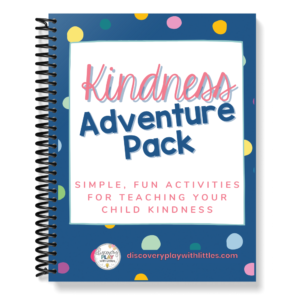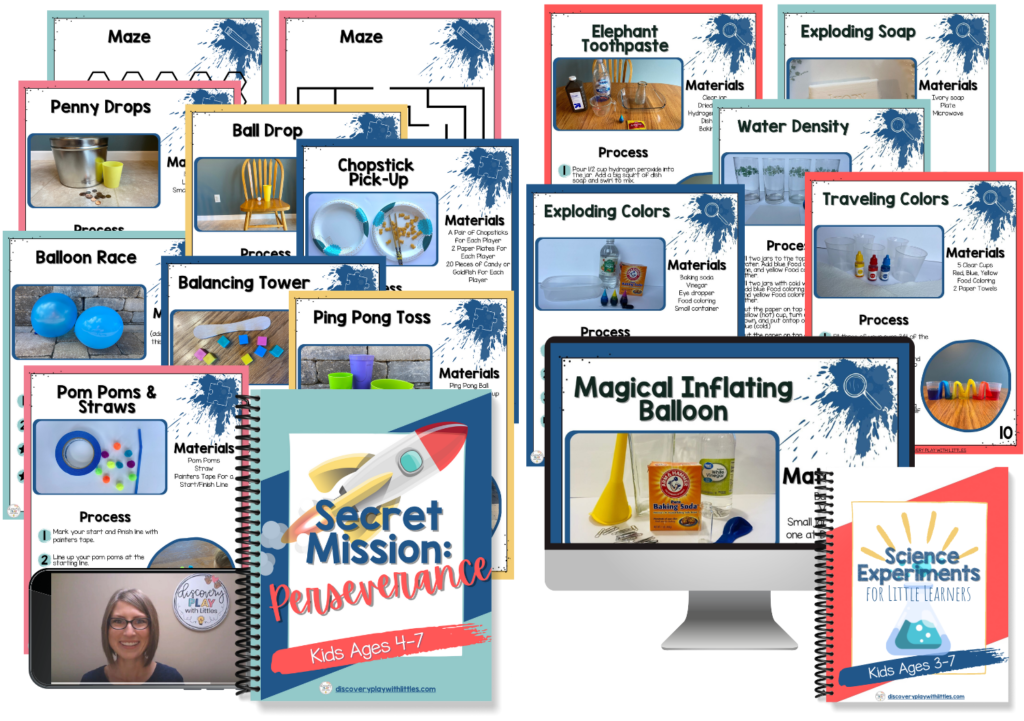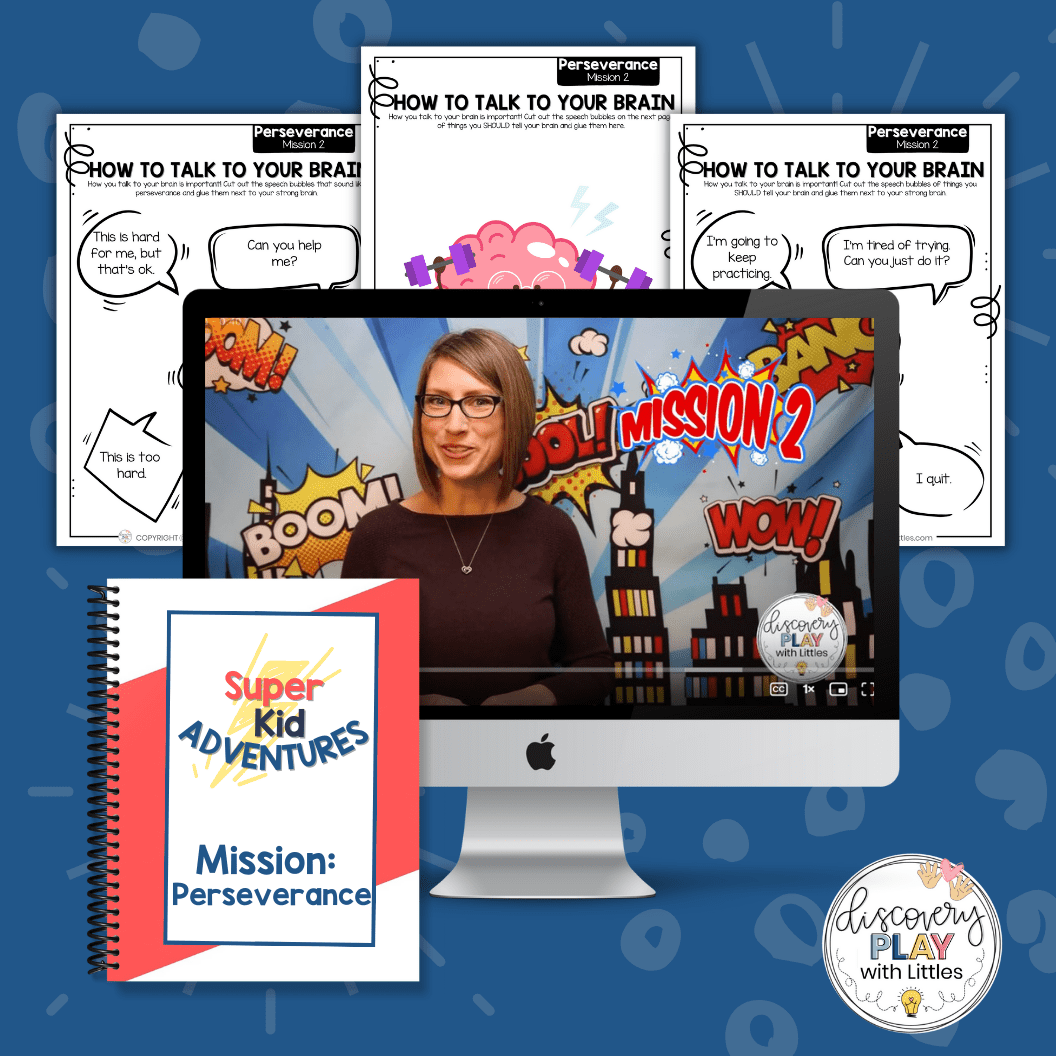We were driving a friend to preschool when I heard trouble brewing in the backseat. “Can I try?” our friend asked.
Silence.
“No, I want it,” he finally replied. This was the third day in a row.
I don’t usually make my kids share, but I will help him think through and make a good decision. After preschool that day, we had a chat about some friendship skills. Unfortunately, making a kind decision usually takes more than just a little chat.
How do you teach friendship?
One of the best ways to teach friendship is to model friendship in your interactions with kids and others. By being kind and modeling friendship skills, kids will learn what it feels like to have a good friend, and then how to be a good friend.
Modeling social-emotional skills such as kindness, thoughtfulness, and empathy with how you treat kids is an excellent way to teach them how to use those skills in their own relationships.
Integrating friendship activities and discussions throughout your day also helps young children learn friendship skills as a way of life. They learn we’re good listeners, we’re caring friends, and we look out for each other.
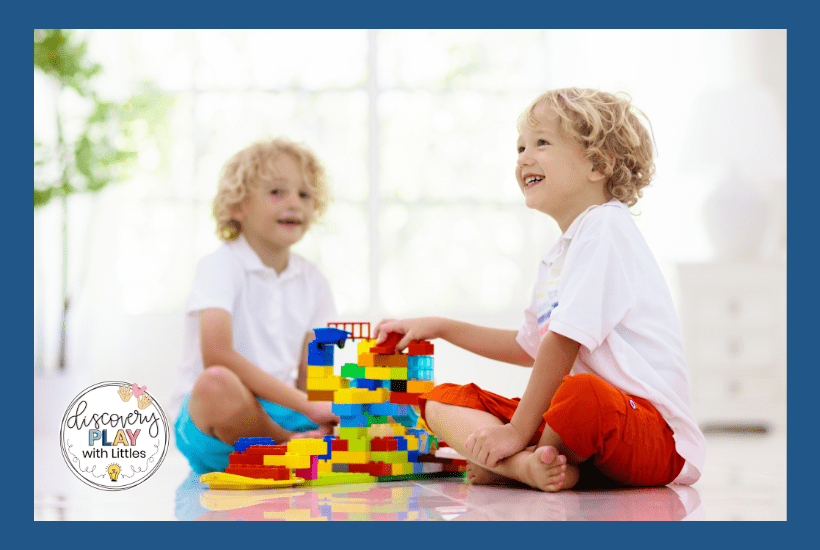
Fun Activities that Teach Toddlers and Preschoolers Friendship Skills
Board Games
Board games are great for teaching social skills. Playing board games gives children an opportunity to practice teamwork, cooperation, strategy, patience, good sportsmanship, and empathy.
You can add in some academic skills as well. Adding a deck of cards to any board game turns it into a fun way to learn academic skills. This is a fun way to practice letter identification, number recognition, rhyming, addition, subtraction, or any memorization skill. If you’re working on letter identification, just write a letter on each card. Before your turn, you must draw a card, and identify the letter. The trick is your kiddo has to check you because you just might get one wrong.
Our favorite games to strengthen social skills are cooperative games.
Kindness Challenge
One of the most important traits of a good friend is kindness. We are drawn to people who are kind, and when kids focus on being kind to others, this helps strengthen their relationships. Grab our free Kindness Adventure Pack for 10 Secret Missions that give acts of kindness to complete and Social Situation cards that’ll get your kiddos excited about showing kindness to others.
Super Kid Adventures

Super Kid Adventures is an online course for kids that teaches friendship, empathy, perseverance, responsibility, and wellness. The lessons and activities in this course help kids activate their superpowers of friendship.
Read
Research shows that when you read a book your brain reacts to this story as if you are living in this story, which makes reading a powerful way to practice kindness and empathy. These are our favorite books that highlight the importance of friendship, and model how to be a great friend.
Let Them Practice
Using social stories is a powerful way to help kids think through social situations before they encounter them in real life. A social story is simply a story about a situation they may encounter. Stop the story before you tell the ending to ask your child “What would you do?” This can help build kindness, empathy, perseverance, and strong relationship skills. Grab our free Kindness Adventure Pack that includes social situation stories.
Secret Mission: Perseverance
Our Secret Mission: Perseverance pack is full of 16 fun activities for kids to strengthen perseverance. Completing challenges together is a great way for kids to strengthen relationship skills. Kids have fun, connect, and have an opportunity to use empathy, friendship, and teamwork.
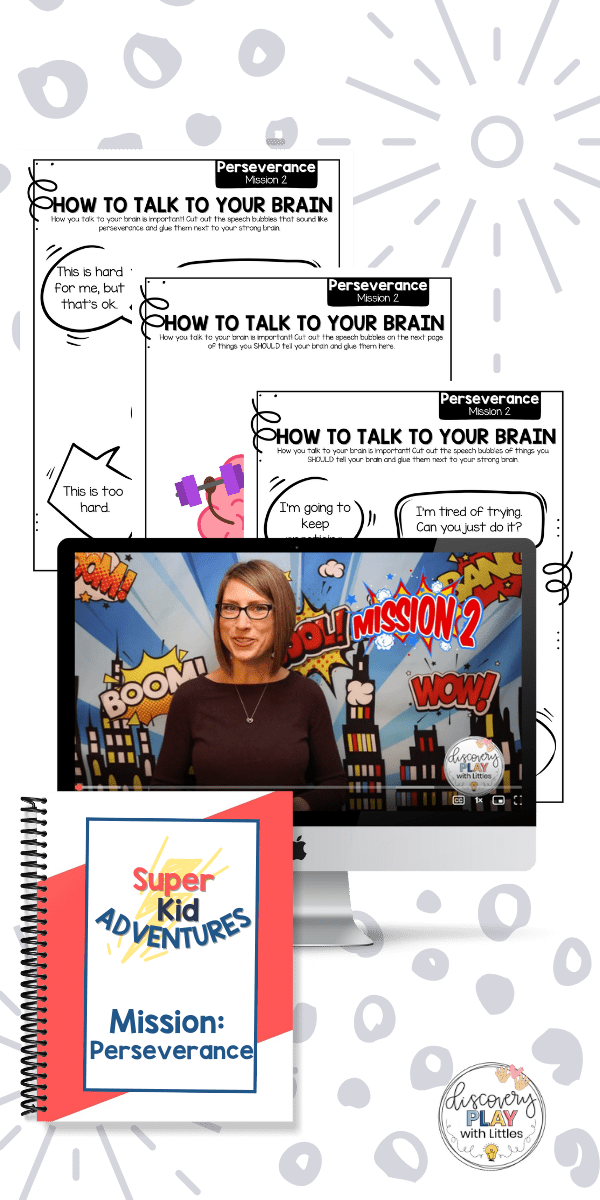
Are you tired of hearing “It’s TOO HARD!” followed by a meltdown?
Using this one simple phrase you’ll get in this powerful lesson, you’ll not only be able to help your kiddo not give up but you’ll:
>Activate their superpower of perseverance so that they can turn around a meltdown and keep trying
>Inspire them to use perseverance…even when it’s hard
>Teach them to recognize the warning signs of giving up, and how to turn it around by taking control of their choices.
Grab your powerful FREE video lesson to teach your kiddo one of the most powerful keys to perseverance.
Role Play
Role play is another powerful way to help kids think through social situations before they encounter them. Playing doctor, grocery store, teacher, house, or any imaginative play is good practice for relating to others, helping other people, and strengthening relationship skills. You can find our favorite things to role-play here.
Art Projects
Working on art projects together is a great way to practice teamwork and celebrate ideas different than your own. Presenting kids with a challenge like creating a leprechaun trap (in March), or making a disguise for a turkey to hide from a hunter (in November) will give them an excellent opportunity to practice cooperation while having fun and using their creativity. For younger children, even drawing a picture or fingerprinting together is a great way to practice teamwork. This is also a great way to practice fine motor skills.
Me Too
Friendship is strengthened when we find things we have in common with others. To play “Me Too,” have everyone sit in a circle. One at a time, have a student stand in the middle of the circle and say something they love. It could be their favorite animal, favorite activity, favorite food, or color. Maybe a fact about their family. After they’ve said their fact, anyone who has that thing in common with the person in the middle will raise their hand. This gives kids a chance to see how much they have in common with their friends.
This is a great activity for a new school year because it helps young children learn classmates’ names, and will create connections between new friends that’ll get your year off to a great start.
Friendship Fingerprints
To make friendship fingerprints all you need is an ink pad and a piece of paper. Go around the room and have everyone put a fingerprint on the paper. To make a picture out of the fingerprints, such as a flower, use some fingerprints for the flower, the stem, the leaf, and even the sun. After you’re done making the picture, look at it and have a discussion about how all of the fingerprints are different. Just like kids, everyone is different and unique, but important and special.
Work Together
Open-ended games that have kids using teamwork are a great opportunity to practice friendship skills. Activities like building blocks, playing dolls, or even working together on a challenge like which team can build the tallest tower, all provide kids with opportunities to strengthen their relationship skills.
Friendship Chain
Gather everyone around and brainstorm ideas on how you can be kind to your friends. Once you have a list, write each idea on a piece of paper and make a paper chain. Every day tear one loop off the chain and do the activity. To get you started with ideas, grab our free kindness adventure pack and write each mission idea on a loop.
Make A List
First, you’ll want to decide on the characteristics of a good friend. Talk with your kiddo about the characteristics of their friends. Why does your kiddo want to be friends with this person? What makes this person so special? They will probably list things like they’re fun, kind, and silly.
Dive deeper into those questions and ask what do they do that’s kind? How are they fun? What makes them thoughtful? Once you have a list of things you like about your friends, it’s easier to come up with a list of how to be a good friend.
Sharing Kind Words
Kids LOVE it when others give them compliments. Kids need to learn how to say (and appreciate) the good things about others, but hearing what others appreciate about them is also life-giving. If you’re in a large group, you can draw names and give a compliment to the person you drew a name to, or if it’s just your family, each person gives a compliment to each member of the family. We do this weekly during our family meetings.
Don’t forget to teach how to give a meaningful compliment. The compliment should be something meaningful that the receiver of the compliment has worked hard on. Not something they didn’t do anything for such as “I like your shirt”, but something that recognizes how hard the person worked that week such as “I noticed you worked really hard on your reading homework this week.”
Scavenger Hunts
Going on a scavenger hunt together will give young children an opportunity to use teamwork, patience, and problem-solving together. Scavenger hunts are simple games to set up, and kids love finding treasures. You can do a scavenger hunt with one child or a whole class.
Obstacle Course
Kids love obstacle courses and will have a great time cheering for each other as they complete the tasks in front of them. You can set up obstacles outdoors or make an obstacle course indoors with painter’s tape on the floor. Watching and encouraging others is a simple way to help children practice empathy and encouragement.
Teaching friendship (and any skill) takes intentionality. It takes more than just matching two picture cards that go together or making friendship bracelets. Teaching friendship takes intentional teaching and the practice of several social skills. I’m thankful you’re willing to put in the effort, your kids will benefit from it for their entire lives.
Oh, and back to the car ride to preschool. The next time we took our friend to preschool, (and every day since) he was actually excited to share with her because he feels proud to be a good friend.
Want More?
25 Social-Emotional Learning Activities for Toddlers and Preschoolers
15 Powerful Problem-Solving Activities for Toddlers and Preschoolers
43 Children’s Books about Friendship that Teach How to be a Good Friend
Your Turn:
How do you teach your kids the important skill of friendship?

